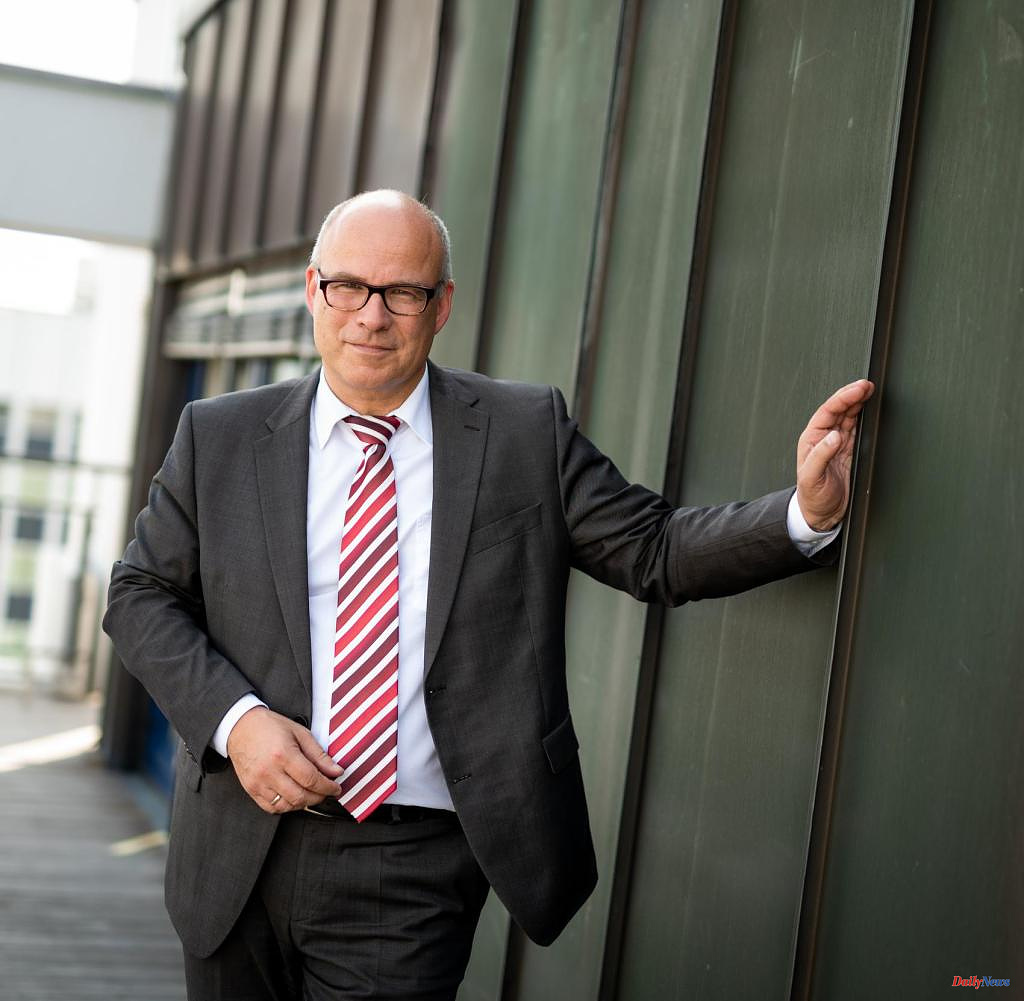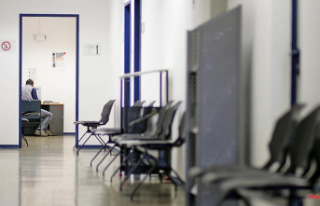School Senator Ties Rabe (SPD) pours himself a glass of Diet Cola. The 61-year-old observes how a last bubble of carbon dioxide rises in the glass and comes to the conclusion: "The bottle has been in the fridge for a long time." It was quiet on the school board for weeks, during the holiday season. School starts on Thursday of the new week. Time to move forward for the schools and the senator. At the end of the conversation, the half-full bottle of stale lemonade is also history.
WELT AM SONNTAG: As in many years, you have announced a student record for this year. Are the schools well prepared for this?
Ties Rabe: At the moment we are doing well. But it's exhausting to keep the promise that we won't lower the quality and, for example, continue to have small classes. We have to build a lot for this and we need a lot of additional teachers. Unlike other federal states, however, we are lucky or have the ability on our side to have a very good situation when it comes to applying for teachers. We hire 800 to 900 new teachers every year. That's a massive number.
WELT AM SONNTAG: In the past, the start of school always included the question of how many containers should be set up because the schools did not have enough capacity. Are you ready with the school building? Or do you only hear fewer complaints?
Rabe: We have actually made great progress with the school building. Compared to the time before I became a senator, we have increased the funds by a factor of two and a half and invest an average of 350 to 400 million euros per year. You can build a lot with it. If we still set up containers today, it is usually to accompany the construction work. This is usually something that a school community can tolerate more easily than when we set up school containers with the prospect that ten years will stand still.
WELT AM SONNTAG: Before the holidays there was a stir when you presented new educational plans for the first subjects. Did you expect the criticism? For example, they were accused of going backwards because written exams are supposed to play a greater role.
Rabe: When new education plans are made, that means change. She has to come here too. There is always considerable protest in the school world. The sharpness and sharpness surprised me a bit. Much of what we do is what all other federal states do and what the Conference of Ministers of Education intends for all of Germany. It should actually go without saying that we also implement this in Hamburg.
WELT AM SONNTAG: You say there must be changes in the educational plans. Why?
Rabe: Our society is changing and the major guidelines of this change must also be taken up in schools. This means that digitization must take up more space. But the issue of value formation is also important in a heterogeneous society like ours.
In addition, the issue of sustainable development must play a greater role. In addition, we want to strengthen the written language, because Hamburg schoolchildren do not always have the level of written proficiency that we would like. And finally, for the first time, we want to define more precisely what is to be learned in class. In the future, half of the subject matter will be the same at all schools, and the rest can be designed freely by the teachers.
WELT AM SONNTAG: Can you explain that using German as an example?
Rabe: It's about the subject of reading in the upper school, for example. There is still no direct specification as to which novels or poems must be read. But it is said for the first time that certain periods of literature must be taken into account.
WELT AM SONNTAG: Why is it important that the students have comparable knowledge?
Rabe: Quite profane, because the Conference of Ministers of Education will in future set the nationwide final exams and we have to prepare well for these exams. On the other hand, it is important that schools impart a certain amount of orientation knowledge. The communication of factual knowledge has long been viewed somewhat critically in science. However, we see today that students need a certain amount of this in order to find their way in the world, to be able to read the newspaper or to understand the news.
WELT AM SONNTAG: When classes start on Thursday, what corona measures apply in schools?
Raven: We're going out of the vacation like we went in. The schools do not have to take special security measures to heart. We want the greatest possible degree of normality.
WELT AM SONNTAG: What do you think: will that change in the fall?
Rabe: We will stick to what the health ministers then prescribe for all of Germany. We can reactivate all safety measures if the situation requires it, i.e. reintroduce a mask and a test obligation, switch the ventilation devices on again or change the organization of schools so that the students meet as little as possible.
But one thing is important to me: Schools should not be subject to any other corona measures than other parts of public life. In this context, I am pleased that the federal government has made it clear that there will be no more school closures. A comparison with other European countries shows that Germany has closed schools particularly often and we are now struggling with a lot of learning deficits.
WELT AM SONNTAG: How long will it be before all children are where they would have been without the school closures?
Rabe: Not all children were affected in the same way. Some have already caught up, while for others it will take years. That is why I am disappointed that the Federal Minister of Education and the Federal Government do not want to extend their Corona aid measures in the field of education. In relation to the amount of Corona aid we pumped into other areas, it was clear in the education sector anyway. Here we would have wished that the programs that enabled additional tutoring in the afternoon or the Hamburg learning holidays, for example, had continued to be funded. We now have to examine what we can save with state funds.
WELT AM SONNTAG: Will it be difficult to get support for this in the budget consultations?
Rabe: I am satisfied with the previous Hamburg budget consultations. The starting point for our authority is good. But up until now, there has always been money from the federal government for special burdens. We see with concern that there seems to have been a change in views with the change in the Ministry of Education.
WELT AM SONNTAG: Let's stay with special burdens. Energy prices are also forcing cities to save. Will this be noticed in schools?
Rabe: We currently have a number of projects that schools can use to control and improve their own energy consumption. We are in talks to intensify the programs so schools are careful not to waste energy. Of course, we also look at the general specifications for offices, sports halls and other rooms. The school world can certainly also take part in changes. But it is important to me that we enable nice, pleasant learning and that the children don't sit out in the cold.












